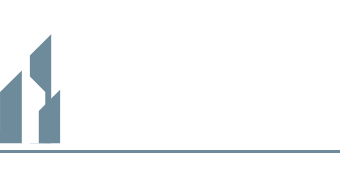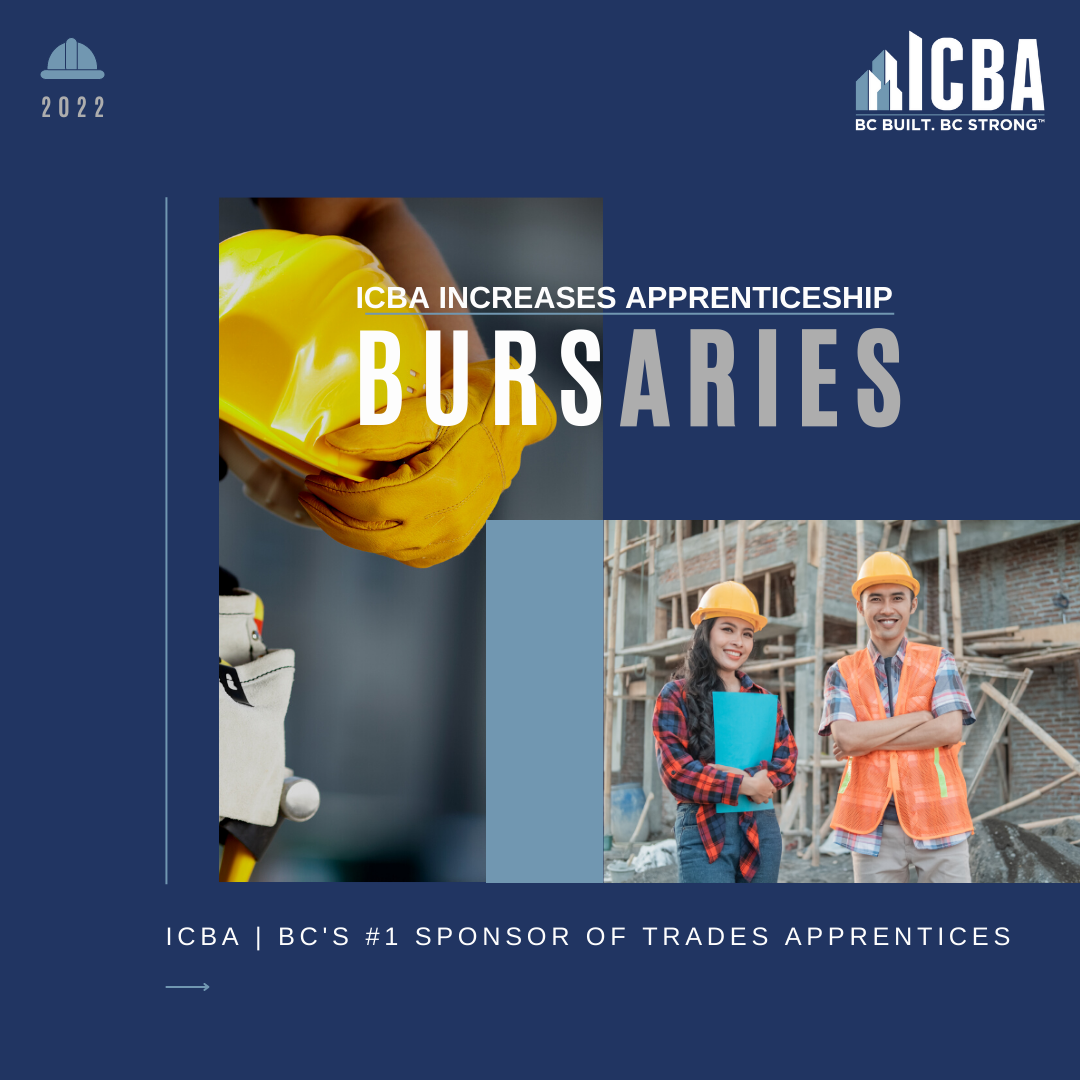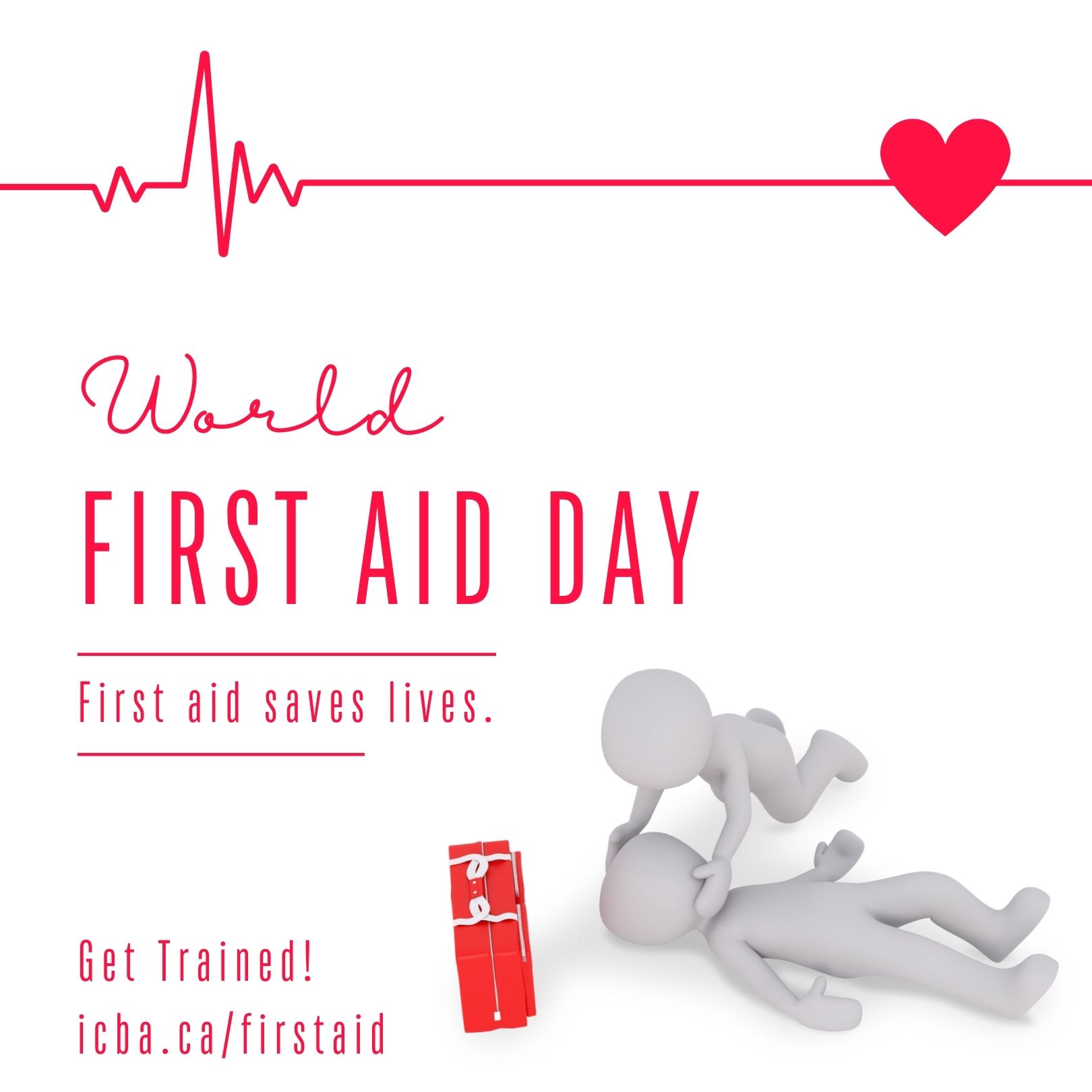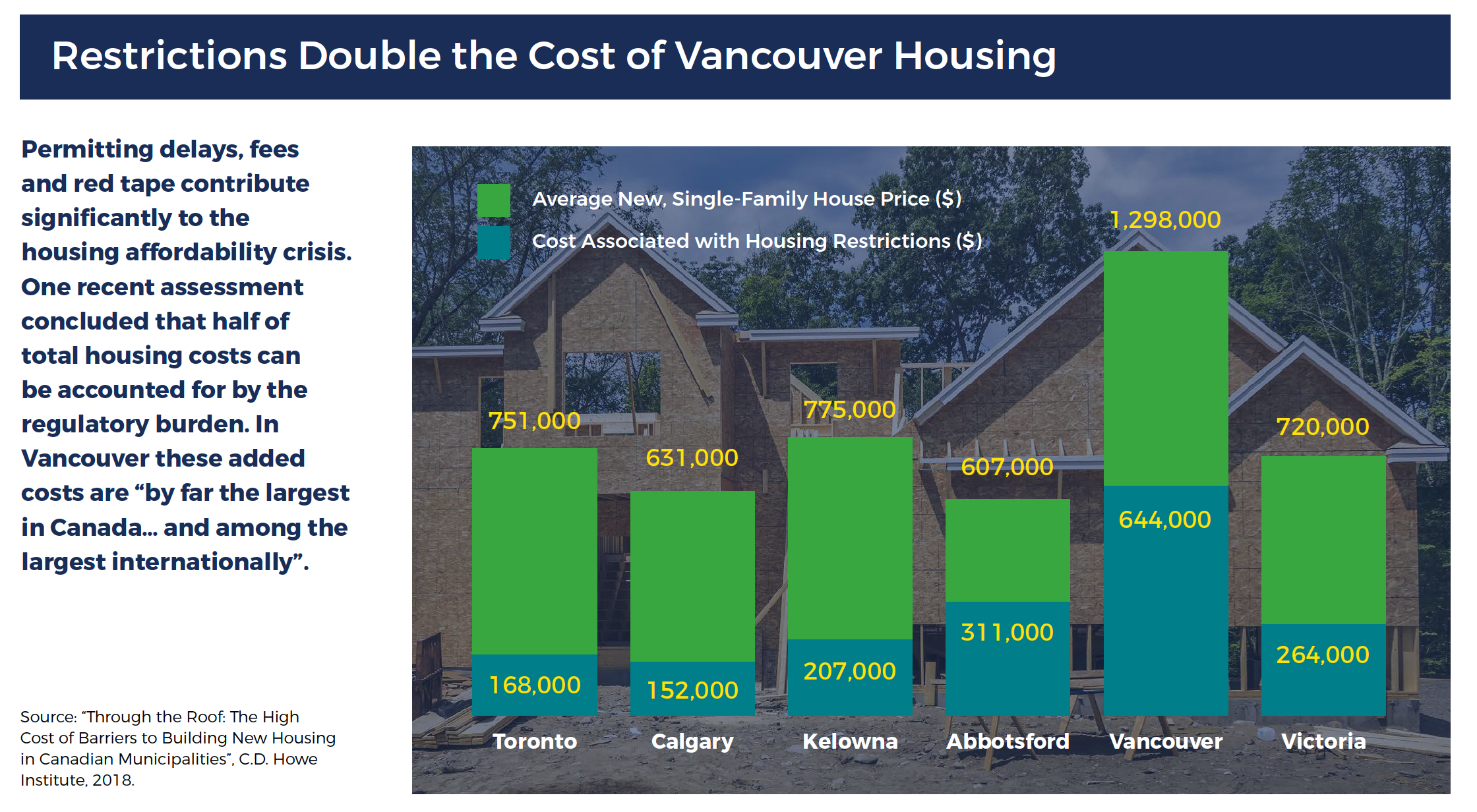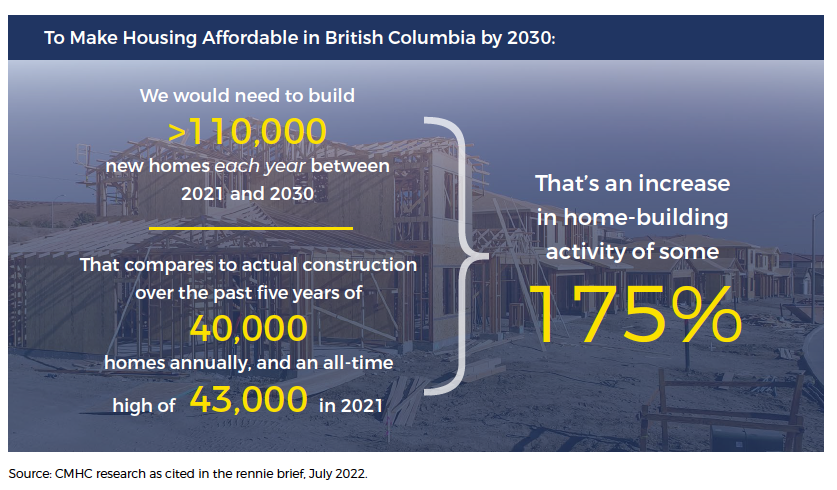This op-ed, by ICBA president Chris Gardner, first ran in Business in Vancouver on September 12, 2022. For more analysis on municipal effects on housing costs, see our September 2022 Construction Monitor.
With inflation making life more unaffordable than ever in British Columbia as we head into a local government election cycle, it’s tough to muster much confidence that our political leaders at city halls will be offering any real relief on important pocketbook issues.
In fact, too often local politicians fail to fully grasp the unintended outcomes of their decisions and end up doing things that make housing and transportation more expensive for families. They compound the challenges with every piece of red tape, new tax, added fee and seemingly endless delays in much needed housing and infrastructure projects.
Vancouver City Council is an obvious example. Mayor Kennedy Stewart has city staff quietly driving ahead with a plan to bring in road pricing for downtown Vancouver.
To out-of-touch political leaders and government bureaucracy, it makes perfect sense to force everyone coming downtown to pay more. Not surprisingly, those forgotten in this ill-conceived tax grab will be working men and women, seniors, students, and small businesspeople.
A road tax will have a disastrous effect on affordability. It will hit those who can least afford it and for businesses able to pass on the cost of this new tax, they will, increasing the cost of everything we buy, including housing. It will squeeze construction workers who don’t have the option of toting their tools and supplies on bikes or on public transit. The road tax will add to the cost of all materials being delivered to a site, hitting homebuyers yet again.
All this in a city that is already one of North America’s most expensive places to live. A recent CD Howe Institute study shows that Vancouver homeowners pay an average of $644,000 in government taxes and fees on every newly built home – that’s nearly half the price of a new home and its more than twice the percentage paid in taxes, fees and regulations compared to Toronto.
No wonder Vancouver is dead last in the Canadian Home Builders Association’s review of 23 major Canadian cities for progressive planning practices, low charges, and quick approvals.
Too many other city councils are following Vancouver’s lead by hiking fees and restricting supply. It’s a shocking and expensive fact that many projects take longer to get approved and permitted than to build. It’s so bad, that two years ago, the World Bank ranked Canada #64 in the world in the length of time it takes to approve and permit a project.
On the one hand, people are desperately pleading for affordable housing, one the other, they pack council chambers in cities across BC railing against change in their neighbourhoods, forcing councils into full retreat.
Earlier this year, the Canada Mortgage and Housing Commission (CMHC) issued a report that laid out the facts on housing affordability and stated that the last time housing was affordable in Canada was in 2003 – two decades ago. What has happened over the last 20 years, a cascade of red tape, regulations, taxes, fees and never-ending debates and delays on the desirability of new projects.
But CMHC also provided a solution, bring more housing supply on to the market. This point was reiterated by the Bank of Canada – in fact every objective analysis of the housing affordability crisis we are now living through comes to the same conclusion, supply is not keeping pace with demand, and we need to build more and build it faster.
Yes, wages for people working in construction are increasing and building supplies cost more and take longer to order. But it’s municipalities that have the single biggest influence on the cost of construction projects.
Voters in municipal elections this October can send a clear message and elect mayors and councillors committed to doing something meaningful about affordability.
The opportunity – elect candidates who will propose concrete ways to streamline bureaucracy, cut red tape, look for opportunities to speed up project approvals and permits, and hold the line on taxes and fees. Support those who have the ideas – and the courage – to stand up to the not-in-my-backyard activists who are making our communities less welcoming, less inclusive, and more expensive.
